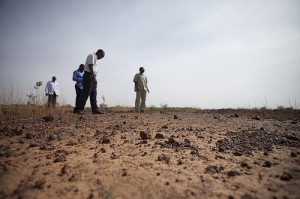MOTIVATION
Today, smallholder farmers in more than 15 countries successfully grow crop varieties developed through biotechnology. Other countries, however, have not integrated biotechnology into their agricultural systems, often due to a lack of a biosafety framework that facilitates safe access to products and varieties. At the request of countries, IFPRI, through its USAID-funded Program for Biosafety Systems (PBS) supports the development and implementation of science-based, functional biosafety systems that ultimately expand producer choice, inspire consumer confidence, facilitate trade, and promote agricultural research and development.
OUTCOMES
The following outcome highlights come from some of the countries PBS supports and have been developed through strategic actions such as providing technical support and legal analysis, conducting outreach and education, coordinating legal reviews, implementing guidelines for biosafety bills, and hands-on training.
Africa Highlights:
- Kenya – PBS contributed to the passage of a biosafety bill and associated implementing regulations;
- Uganda – supported the development of guidelines resulting in eight field trials; provided strategic problem solving to enable passage of a national biosafety bill;
- Nigeria – provided strategic technical assistance for the passage of the national biosafety bill and associated implementing regulations;
- Malawi – contributed with technical assistance to enable the first biotech field trial (for genetically engineered cotton) in 2013;
- Tanzania – provided technical assistance for review and possible revision of the current biosafety regulations.
Asia Highlights:
- Philippines – conducted capacity building for biosafety regulators which resulted in the release of commercial products in the market;
- Indonesia – conducted capacity building for the new Biosafety Commission and associated technical committees to enable multiple product approvals and movement towards first commercial release of biotechnology varieties;
- Vietnam – provided technical support for the implementation of the first confined field trials and for the development of specific implementing regulations on food, feed and environmental safety.



